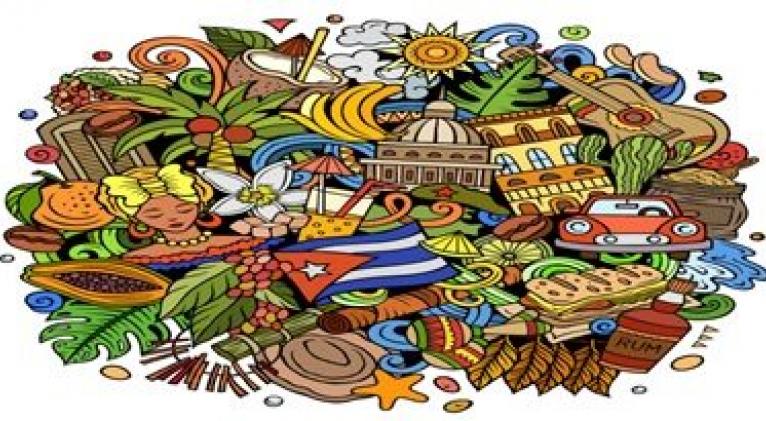Cuban Culture: Never Cheap, Always Necessary
especiales

The Cuban cultural industry has wavered between improvisation and stratification within the policies of its institutional sector. It is sometimes viewed from a conformist perspective, other times it is demanded to deliver what it is not in a condition to provide. In any case, the production of culture in the country for export, commercialization, and net monetary profit has had its chiaroscuro, placing it in the zone of scant realization and impact on the bulk of the economy.
Despite an enormous musical potential, with talents that are born and develop naturally, the island fails to achieve take-off. Its record labels sometimes fall short compared to initiatives conducted privately, with foreign financing, or that simply take the artists abroad. The same happens in other artistic manifestations. Culture is a national essence, but also a way of life; it can and must generate income that allows it to exist and offer artists a dignified existence.
The Debate on Genres and the Frozen Image
In recent years, a debate has erupted around musical genres, consumption, and hierarchies. And although this is invigorated during congresses of artists and writers, it should be a topic of daily discussion in public forums. The Cuba of today is not the same as ten years ago; the psychological, social, and symbolic demands have changed. Whether for better or worse, reality imposes itself, and with this vision, there should be a parallel transformation in the decision-making bodies surrounding the cultural industry.
What is produced and exported from Cuba still remains the same: clichés surrounding the colonial, the mulata, the gallego, the rum, the beach. But if one looks deeply inside these tourist packages, it becomes clear that genuine elements of the culture are rarely included. Visitors often take home a sweetened and false image of life in the country, whereas what should be pursued is authentic tourism, capable of moving people despite the problems that afflict us and that are part of a national construction agenda.
The "Cool" Strategy and the Lack of Balance
Similarly, the weighting of urban musical genres in cultural programming grids could be a strategy that someone finds cool, attractive, and indicative of a realistic and competitive market. But one must ask whether a people with as much and as diverse a culture as the Cuban one only wants to enjoy those rhythms. The lack of balance and vision in what is conceived as commercial sometimes turns products into vehicles for bad taste, vulgarity, and consumerist ideas that assault social networks and form a unique mentality in the globalized human being of today.
It is not that this distribution is wrong, nor that it should be demonized, but rather that it is not the only thing we can commercialize. Selling a single face of the country is also contributing to cultural self-colonization and surrendering weapons that would otherwise have to be on our side.
Exporting Culture: A Question of Power
When a certain type of culture is exported, an image of power or disempowerment is being constructed. This must be clear, because there seems to be a peculiar aftertaste in linking our island to events that have nothing to do with our idiosyncrasy. Videos that exalt violence, concerts where vulgar language is used openly, events where shamelessness has prevailed. The "anything goes" approach is not part of any valid formula when making art. That was never the ABC of what was promised to us as part of cultural policy.
Although there may be those who say that this distribution is "ours," we must be careful with what is expanded and weighted, with what is praised from certain positions. Because later, when behaviors, alliances, ways of conceiving life, and prejudices are created, it becomes worse and more irreversible. Culture is a co-creator of meaning alongside policies. While regulations influence cultural action, the latter has a dialectical relationship with the institutions and the ranks that classify us, open our range, and lean toward a certain symbolism.
The Urgent Role of Culture
What we have seen in recent years, with a resurgence of violence and cases connected to the material crisis, are warnings that culture must fulfill its role: on one hand, the social control of those always unruly elements that do not understand the limits established by a certain civilizing mark; on the other, the factor of mass aggregation around the meanings we share. And this is the materiality of culture that fails to be understood from power guidelines when making decisions, creating programming grids, and discussing what should be defensible and what should not.
So, when another Halloween night passes in Cuba, we should be able to discern which culture edifies and which alienates us, which builds paradigms and which tears them down—but not to raise a solid universe of meanings. The national culture is not a commodity, although it has to be made profitable, prosperous, and powerful. It must not be sold cheaply, but given that necessary weight in the urgency of a country and a people that cannot walk without essential guidance.














Add new comment